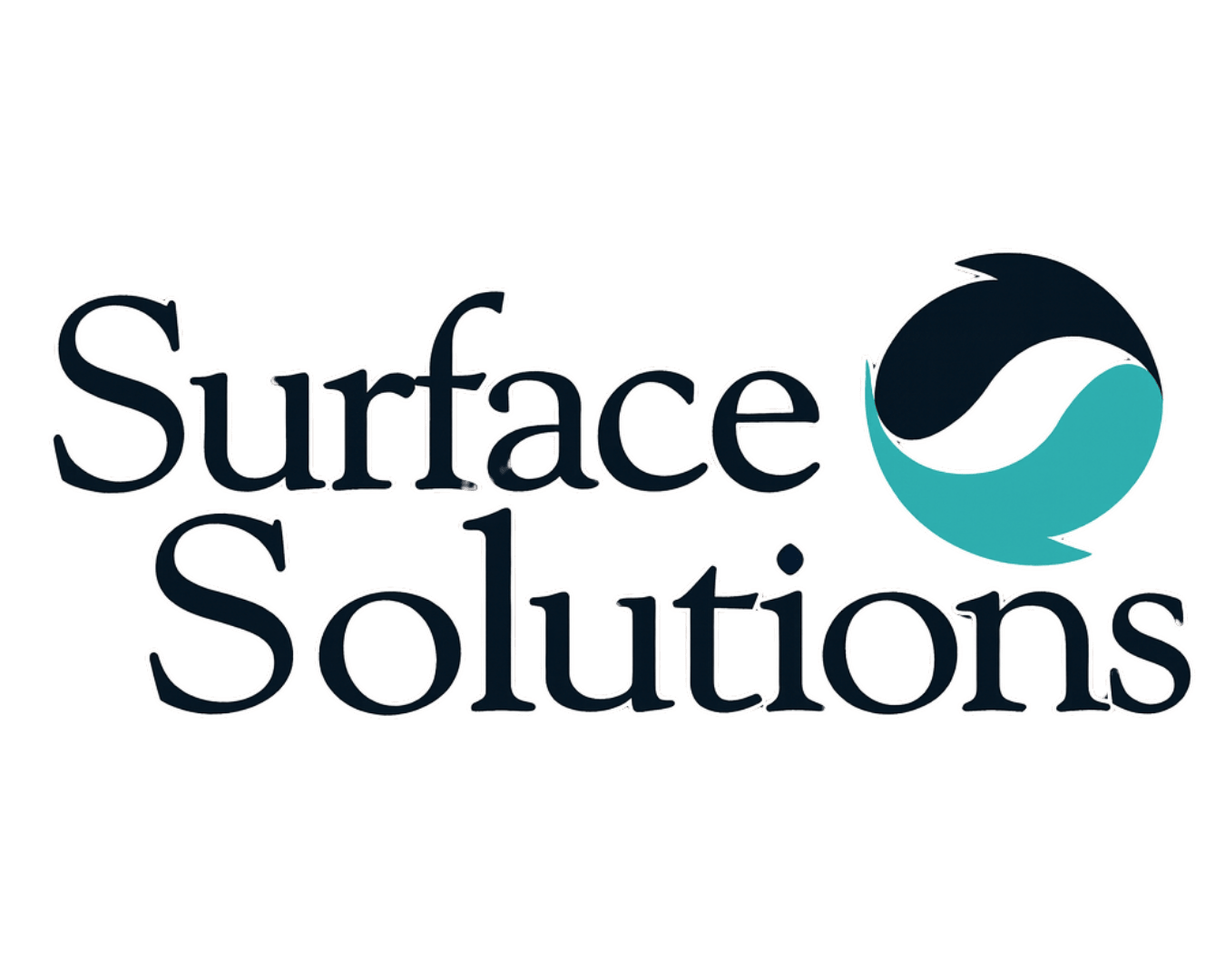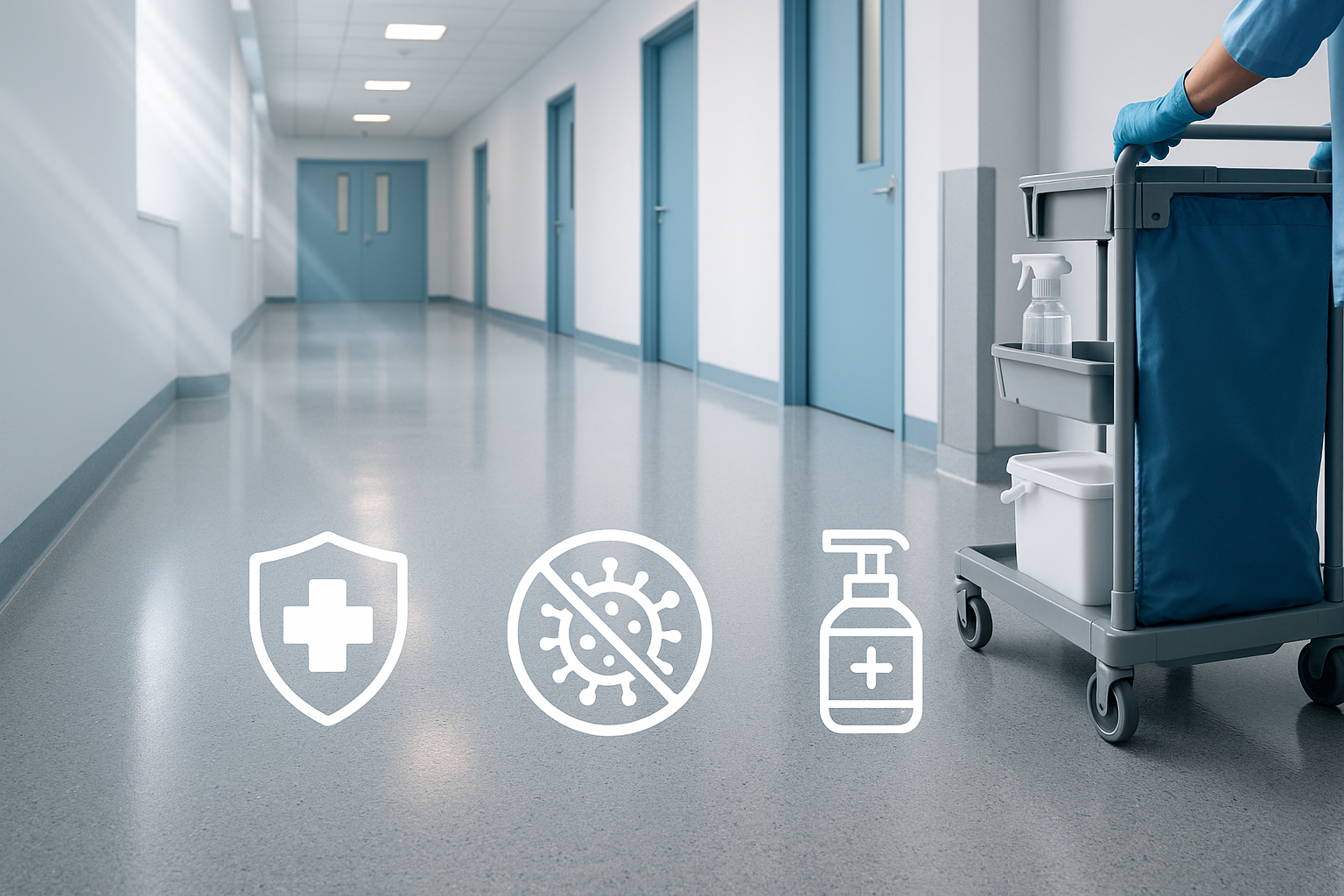In this post, we’ll explore why antimicrobial flooring is gaining traction, how epoxy and concrete systems support sanitation goals, and how Surface Solutions Consulting helps clients build cleaner, safer spaces.
Table of Contents
- The Rise of Hygiene-Focused Design in Commercial Facilities
- What Is Antimicrobial Flooring?
- Why Epoxy Coatings Are Ideal for Hygiene-Sensitive Environments
- How Polished Concrete Supports Infection Control
- Applications by Industry: Where Clean Floors Matter Most
- Surface Solutions: Your Partner in Sanitary Flooring
The Rise of Hygiene-Focused Design in Commercial Facilities
The global pandemic changed how we think about shared spaces. Cleanability, pathogen resistance, and airflow used to be hidden concerns. Now they’re priorities—and flooring is a critical component of that equation.
New drivers of antimicrobial flooring demand:
- Heightened consumer expectations for cleanliness
- Stricter sanitation protocols in healthcare and food production
- Increased investment in long-term infection control
- Regulatory requirements in high-traffic or public-facing spaces
In response, architects and facility managers are seeking low-porosity, seamless flooring systems that reduce bacterial growth and are easy to disinfect—especially in environments where pathogens can spread rapidly.
What Is Antimicrobial Flooring?
Antimicrobial flooring is a surface system that either:
- Resists the growth of bacteria, mold, and mildew, or
- Actively inhibits or destroys microorganisms using built-in additives like silver ion technology or antimicrobial polymers.
It’s not just about being “clean”—it’s about being biologically resistant to contamination, with smooth, sealed finishes that don’t trap pathogens.
Unlike porous materials like carpet, vinyl seams, or tile grout, epoxy and polished concrete offer uninterrupted surfaces that are inherently easier to sanitize.
Why Epoxy Coatings Are Ideal for Hygiene-Sensitive Environments
Epoxy flooring is one of the most common antimicrobial flooring systems in healthcare, pharmaceutical, and food service settings. And it’s easy to see why.
Benefits of Epoxy for Antimicrobial Needs:
- Seamless surface: Eliminates cracks, grout lines, and joints where bacteria can hide.
- Non-porous and moisture-resistant: Prevents mold growth and bacterial colonization.
- Can include antimicrobial additives: Such as Microban®, silver ion, or other biocidal agents.
- Chemical resistant: Withstands bleach, alcohol, and industrial sanitizers.
- Customizable finishes: Smooth for surgical suites, textured for kitchen slip-resistance.
Surface Solutions Consulting installs epoxy systems that comply with FDA, USDA, and OSHA sanitation guidelines, making them perfect for regulated environments.
How Polished Concrete Supports Infection Control
Polished concrete is not usually considered a “medical-grade” floor—but with the right treatment, it can offer excellent hygiene performance for schools, retail spaces, offices, and public buildings.
Hygiene Benefits of Polished Concrete:
- Densified and sealed: Hardeners and sealers create a smooth, glassy finish that resists moisture and contaminants.
- Low-maintenance: Daily cleaning requires no harsh chemicals.
- No coatings to peel: Unlike vinyl or laminate, polished concrete won’t delaminate or bubble.
- Dust-proofed: Reduces airborne particulates that may carry allergens or microbes.
It’s also cost-effective and sustainable, using your existing slab with minimal waste or replacement material.
Applications by Industry: Where Clean Floors Matter Most
Surface Solutions installs hygienic epoxy and polished concrete floors in a variety of industries. Each has unique needs—but all benefit from seamless, easy-to-clean surfaces.
Healthcare & Labs
- Operating rooms
- Patient rooms
- Pharmacies
- Clean rooms
- Sterile storage areas
Epoxy systems with antimicrobial additives and cove bases prevent buildup at wall joints and stand up to aggressive disinfectants.
Food & Beverage
- Commercial kitchens
- Food production plants
- Breweries and bottling facilities
- Meat and dairy processing
Epoxy coatings with slip resistance and USDA compliance help meet sanitation codes and avoid contamination risk.
Fitness & Wellness
- Gyms
- Locker rooms
- Spas
- Yoga studios
Smooth concrete or epoxy systems eliminate sweat-soaked grout lines and odor-retaining rubber mats.
Education & Childcare
- Classrooms
- Cafeterias
- Hallways
- Nurse’s offices
Both epoxy and polished concrete reduce dust, allergens, and microbial buildup in high-contact spaces.
Surface Solutions: Your Partner in Sanitary Flooring
At Surface Solutions Consulting, we help clients across New Jersey and the Northeast install high-performance, hygienic flooring systems that meet today’s strictest cleanliness standards.
Whether you're renovating an operating room or building a germ-conscious workspace, we deliver:
- Slip-resistant, seamless floors
- Antimicrobial epoxy systems
- Densified, sealed polished concrete
- FDA, USDA, and OSHA-compliant materials
- Clean, expert installation with minimal downtime
We partner with top domestic epoxy manufacturers and use hospital-grade surface prep equipment to ensure long-term performance—and peace of mind.
Ready to Make Clean Floors a Priority?
Call us at 877-CSTM-FLR
Email carolina@cstmflr.com
Visit www.cstmflr.com
Let’s build a cleaner, safer space—one square foot at a time.


.png)
